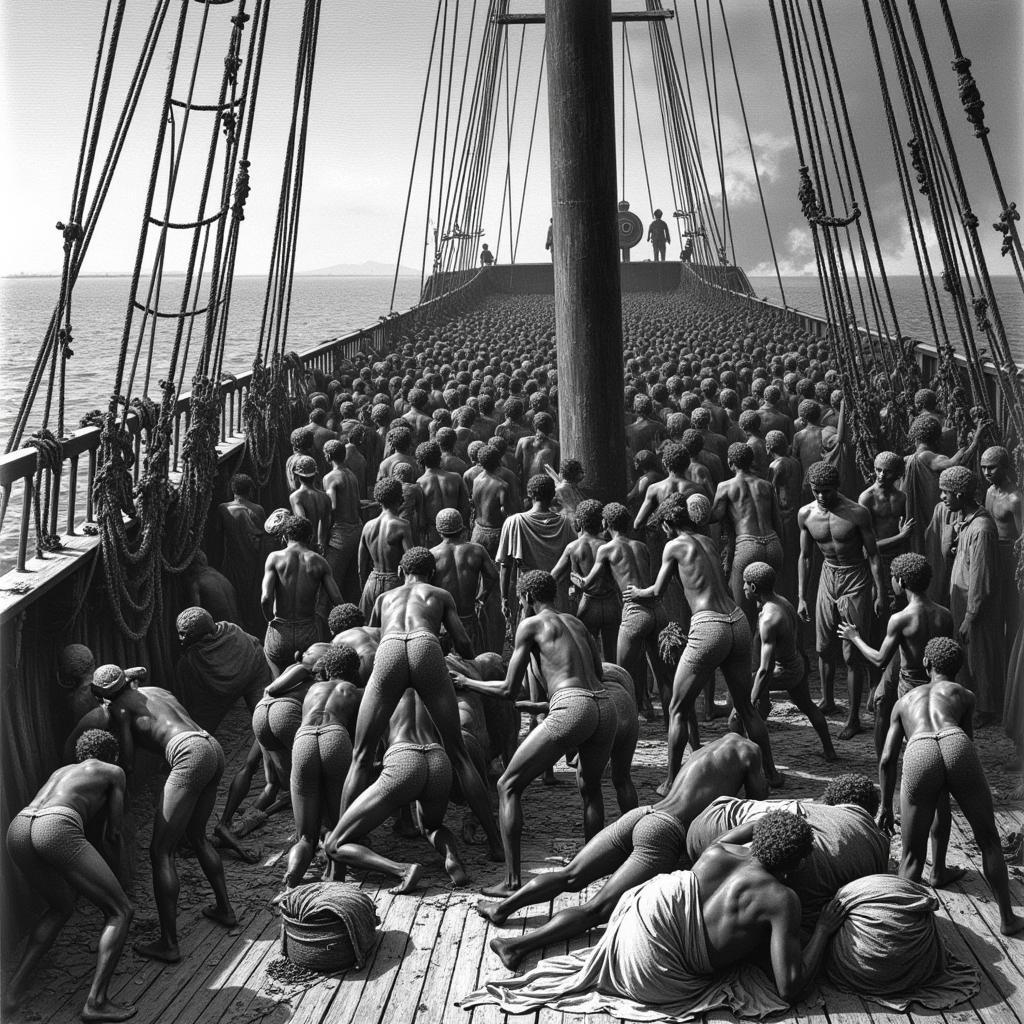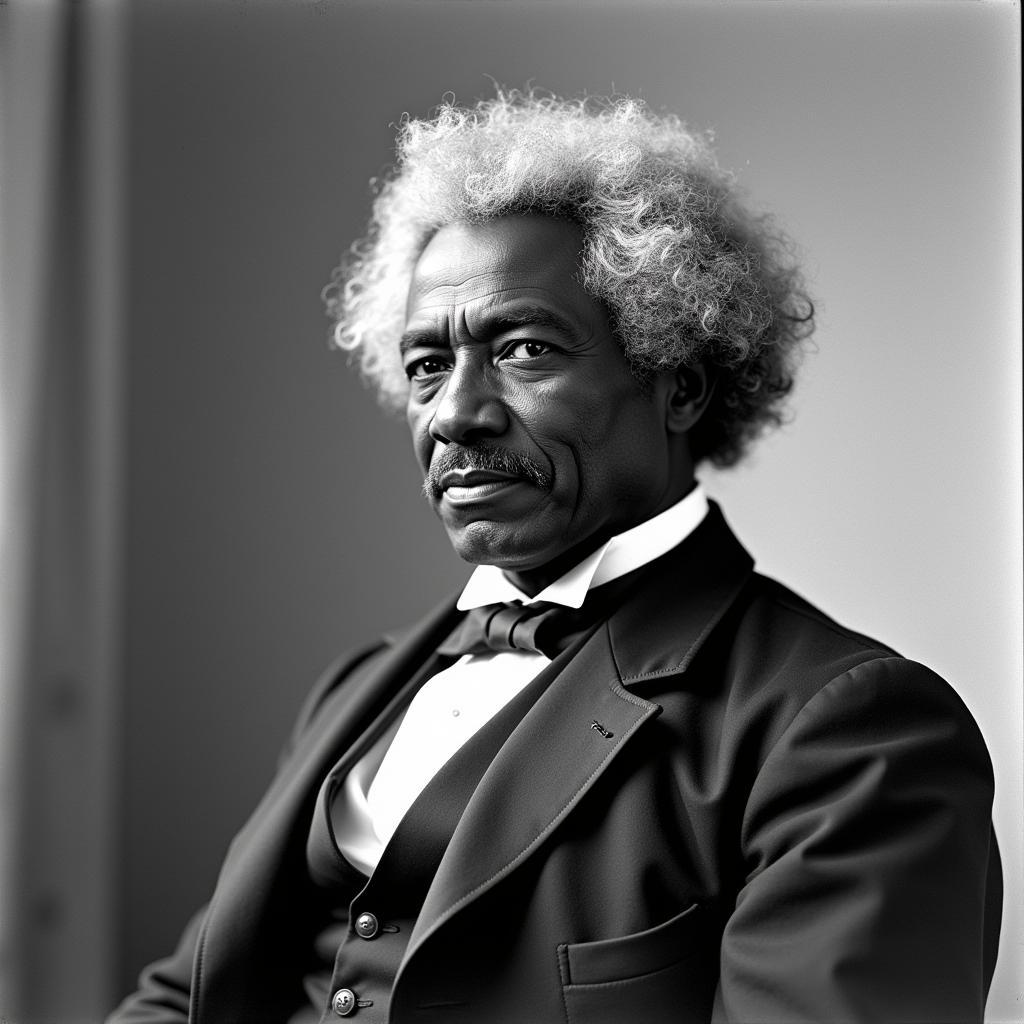A Deep Dive into African American History
African American History is a rich tapestry woven into the fabric of the United States, encompassing centuries of resilience, struggle, and triumph. From the arrival of the first Africans on American soil to the ongoing fight for equality, this history is integral to understanding the American experience.
The Transatlantic Slave Trade: A Brutal Beginning
The story begins tragically, marked by the horrors of the transatlantic slave trade. Between the 16th and 19th centuries, millions of Africans were forcibly transported to the Americas, enduring unimaginable cruelty and suffering.  Depiction of the horrific conditions on slave ships during the transatlantic slave trade This period saw the systematic dehumanization of Africans, who were stripped of their names, languages, and cultures. Despite the brutality they faced, enslaved Africans displayed remarkable resilience, maintaining their traditions through music, storytelling, and religion. These forms of cultural expression provided a lifeline of hope and community during a time of immense hardship.
Depiction of the horrific conditions on slave ships during the transatlantic slave trade This period saw the systematic dehumanization of Africans, who were stripped of their names, languages, and cultures. Despite the brutality they faced, enslaved Africans displayed remarkable resilience, maintaining their traditions through music, storytelling, and religion. These forms of cultural expression provided a lifeline of hope and community during a time of immense hardship.
Fighting for Freedom: Resistance and Abolition
Resistance to slavery took many forms, from quiet acts of defiance to organized rebellions. Figures like Harriet Tubman, a conductor on the Underground Railroad, risked their lives to guide enslaved people to freedom. Frederick Douglass, a powerful abolitionist and orator, eloquently exposed the evils of slavery through his writings and speeches.  A portrait of Frederick Douglass, a prominent abolitionist and orator These individuals, along with countless others, fueled the abolitionist movement, advocating for the end of slavery.
A portrait of Frederick Douglass, a prominent abolitionist and orator These individuals, along with countless others, fueled the abolitionist movement, advocating for the end of slavery.
The Civil War and the Promise of Reconstruction
The Civil War marked a turning point in African American history. The Emancipation Proclamation in 1863 declared the freedom of slaves in Confederate territories, and the Union victory in 1865 brought about the legal end of slavery in the United States. Reconstruction, the period that followed, aimed to rebuild the South and integrate formerly enslaved people into society. The 13th, 14th, and 15th Amendments to the Constitution abolished slavery, granted citizenship to all people born in the U.S., and ensured voting rights regardless of race, respectively.
Jim Crow and the Struggle for Civil Rights
Despite the promise of equality, Reconstruction ultimately failed to deliver on its goals. The rise of Jim Crow laws in the South enforced segregation and discrimination, disenfranchising Black Americans and perpetuating racial injustice. This period witnessed the emergence of organizations like the NAACP (National Association for the Advancement of Colored People), which challenged segregation and fought for equal rights through legal challenges and advocacy.
The Civil Rights Movement: A Turning Point
The mid-20th century witnessed a surge in activism with the Civil Rights Movement. Led by iconic figures like Martin Luther King Jr., Malcolm X, and Rosa Parks, the movement challenged segregation, discrimination, and voter suppression through peaceful protests, boycotts, and sit-ins.  A powerful photograph capturing the spirit of the Civil Rights March on Washington The Civil Rights Act of 1964 and the Voting Rights Act of 1965 marked significant victories, outlawing discrimination based on race, color, religion, sex, or national origin.
A powerful photograph capturing the spirit of the Civil Rights March on Washington The Civil Rights Act of 1964 and the Voting Rights Act of 1965 marked significant victories, outlawing discrimination based on race, color, religion, sex, or national origin.
The Ongoing Fight for Equality
While significant progress has been made, the fight for equality continues. Systemic racism persists in areas like criminal justice, healthcare, and education. The Black Lives Matter movement, founded in 2013, shines a light on police brutality and racial profiling, sparking national conversations about racial injustice.
Exploring Further: A Rich History Awaits
To delve deeper into this captivating history, consider exploring:
African American history is not simply a chapter in a textbook; it’s a living, breathing narrative that continues to shape the present and future. Understanding this history is essential for building a more just and equitable society for all.

